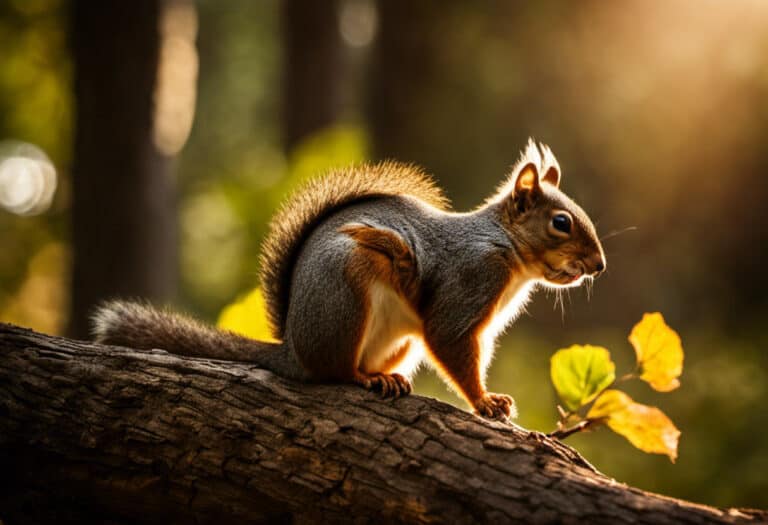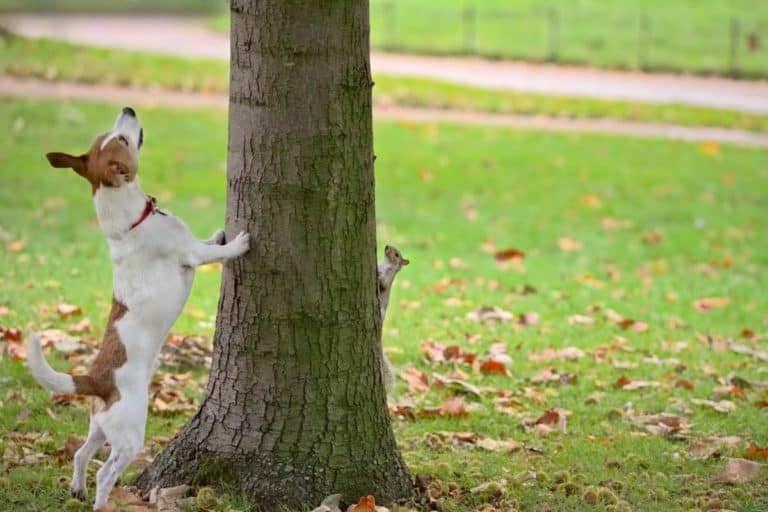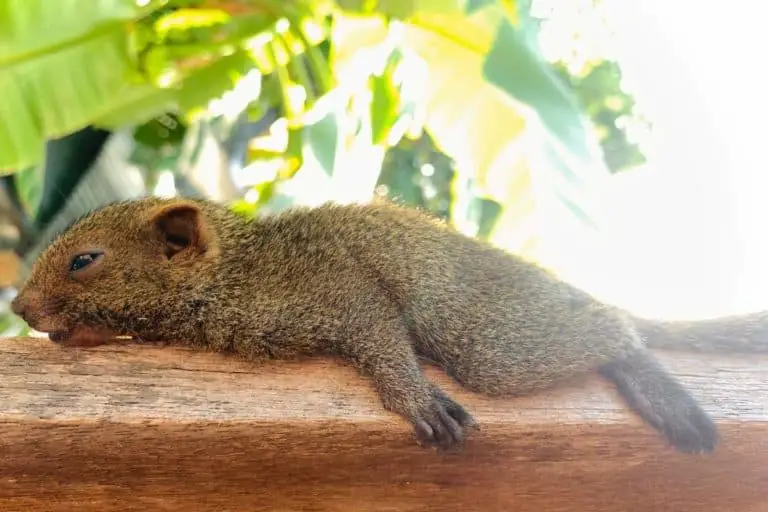Are Squirrels Safe to Touch?
Are you curious about whether it’s safe to touch squirrels? Well, let’s dive into the facts.
Squirrels may seem cute and harmless, but there are potential risks involved. They can carry parasites like ticks, fleas, and bot flies, which can spread to your pets and cause costly treatments.
Furthermore, squirrels have sharp teeth and can deliver painful bites if provoked. These wild creatures can also carry diseases such as rabies, typhus, and leptospirosis.
To protect your health and avoid injuries, it’s best to steer clear of touching squirrels altogether.
Key Takeaways
- Squirrels can carry parasites such as ticks, fleas, and bot flies, which can be transferred to pets and lead to costly treatments.
- Squirrels have sharp teeth and can cause serious bites if provoked, and scratches and bites from squirrels can become infected.
- Calling wildlife control services for squirrel removal is a recommended prevention and control measure, as technicians can inspect for entrance points and provide tips for discouraging squirrels from returning.
- Squirrels are wild animals and can be unpredictable, carrying harmful diseases like rabies, typhus, and leptospirosis, as well as parasites like fleas and ticks on their fur. It is safer to observe squirrels from a distance and avoid touching them.
Health Risks and Parasites
You should be aware that squirrels can carry parasites like ticks, fleas, and bot flies. These parasites can be transferred to your pets and result in expensive treatments. Diseases transmission from squirrels to pets is a significant concern.
Ticks can transmit diseases like Lyme disease and Rocky Mountain spotted fever. Fleas, on the other hand, can cause itchiness, skin irritation, and allergic reactions. Flea infestations in pets can be challenging to control once they occur.
Prevention is key in protecting your pet’s health. Regular tick prevention measures, such as using tick preventatives and checking your pet for ticks after outdoor activities, are essential. Effective parasite control, including flea prevention measures, can reduce the risk of infestation and the associated health risks.
It is crucial to consult with your veterinarian for the best parasite control plan for your pet.
Physical Harm
Observing squirrels from a distance is advisable to prevent potential physical harm. Squirrels have sharp teeth and can cause serious bites if provoked. Their scratches and bites can become infected, leading to further complications.
It is important to understand that squirrels are wild animals and their behavior can be unpredictable. While they may seem harmless, they can become aggressive if they feel threatened. Handling squirrels can put you at risk of being scratched or bitten, which can lead to injuries and possible infections.
To avoid physical harm, it is best to avoid touching squirrels altogether. Remember, their friendly behavior does not guarantee safety. By keeping a safe distance and respecting their natural habitat, you can prevent potential harm and enjoy observing these fascinating creatures.
Prevention and Control
Calling wildlife control services for squirrel removal can be beneficial in preventing squirrels from entering your property.
These professionals have the knowledge and expertise to effectively remove squirrels and implement squirrel deterrent methods.
One important step in squirrel removal is an entrance point inspection. Technicians will thoroughly examine your property to identify any openings or vulnerabilities that squirrels may use to gain access.
Once these entrance points are identified, they can be sealed off to prevent further squirrel intrusions. In addition to sealing off entrances, wildlife control services can provide effective squirrel prevention strategies tailored to your specific situation.
These techniques may include the use of squirrel repellents, habitat modification, and exclusion methods. Utilizing these squirrel removal techniques and wildlife control services can protect your property and prevent future squirrel infestations.
| Squirrel Removal Techniques | Wildlife Control Services |
|---|---|
| Entrance point inspection | Effective squirrel prevention |
| Squirrel deterrent methods |
Dangers of Touching Squirrels
If you provoke a squirrel, it may bite you and cause serious harm. Squirrels are wild animals and can carry harmful diseases such as rabies, typhus, and leptospirosis. They can also transmit parasites like fleas and ticks, which can pose health risks to humans.
It is important to avoid touching squirrels to prevent transmitting these potential diseases. Signs of aggression in squirrels include bared teeth, raised fur, and loud vocalizations. To ensure your safety, it is advisable to observe squirrels from a distance and not attempt to touch or grab them.
If you come into contact with a squirrel, wash your hands thoroughly with soap and water to reduce the risk of infection. It is always better to prioritize safety and minimize the potential dangers of touching squirrels.
Squirrel Biting Behavior
Biting is a defensive response for squirrels if they feel threatened, and it is best to avoid provoking them. Squirrels have their own ways of expressing their discomfort or fear, and biting is one of them. Understanding squirrel defensive responses can help you stay safe and prevent unnecessary bites.
Here are some reasons for squirrel biting and how to avoid provoking them:
- Squirrels may bite if they feel cornered or trapped.
- Loud noises or sudden movements can startle squirrels and lead to defensive biting.
- Approaching a squirrel too closely or invading their personal space can provoke biting.
- Avoiding direct eye contact and giving squirrels enough space can help prevent bites.
- It is important to remember that squirrels are wild animals and should be observed from a safe distance to minimize the risk of bites.
Squirrels and Fleas
Fleas can be transmitted to humans or pets through contact with squirrels, posing potential health risks. Squirrels can carry fleas on their fur, and touching a squirrel increases the risk of getting fleas.
Fleas can cause health problems for both humans and pets. To prevent flea infestation, it is advisable to avoid touching squirrels. Various flea prevention methods are available to protect your pets, such as flea collars, topical treatments, and oral medications. These products can help control and eliminate fleas on your pets.
If fleas bite you or your pet, you may experience symptoms such as itching, redness, and swelling. To treat a flea infestation in your home, it is important to thoroughly clean and vacuum your living spaces, wash bedding and linens in hot water, and use flea control products specifically designed for indoor use.
Conclusion
In conclusion, it is not safe to touch squirrels. They pose various health risks due to the parasites they carry, such as ticks, fleas, and bot flies.
Squirrels can also cause physical harm with their sharp teeth and unpredictable behavior, potentially leading to serious bites and infections.
To prevent these dangers, it is recommended to avoid touching squirrels altogether. This will help protect both humans and pets from potential diseases and injuries associated with squirrel contact.






